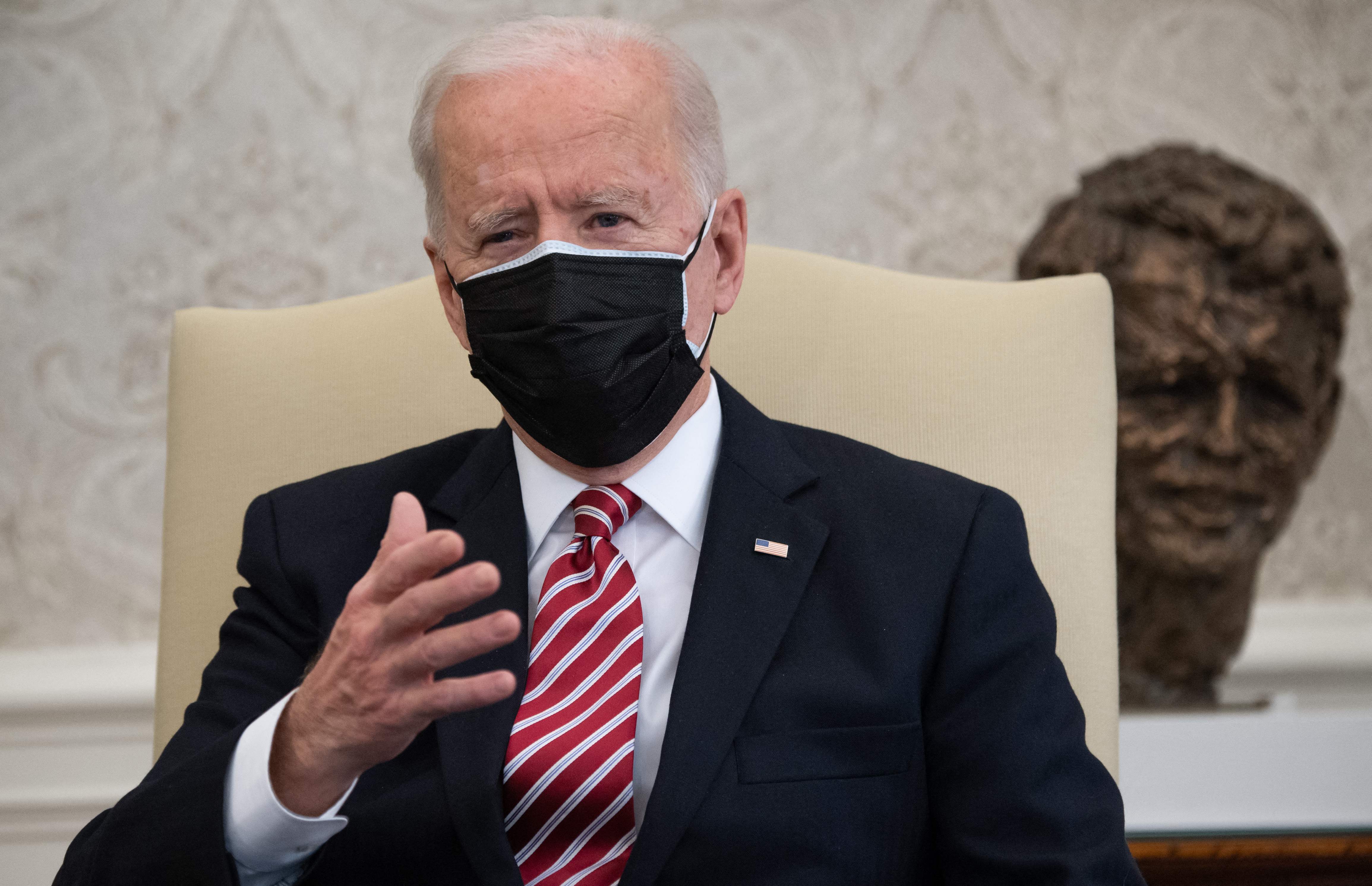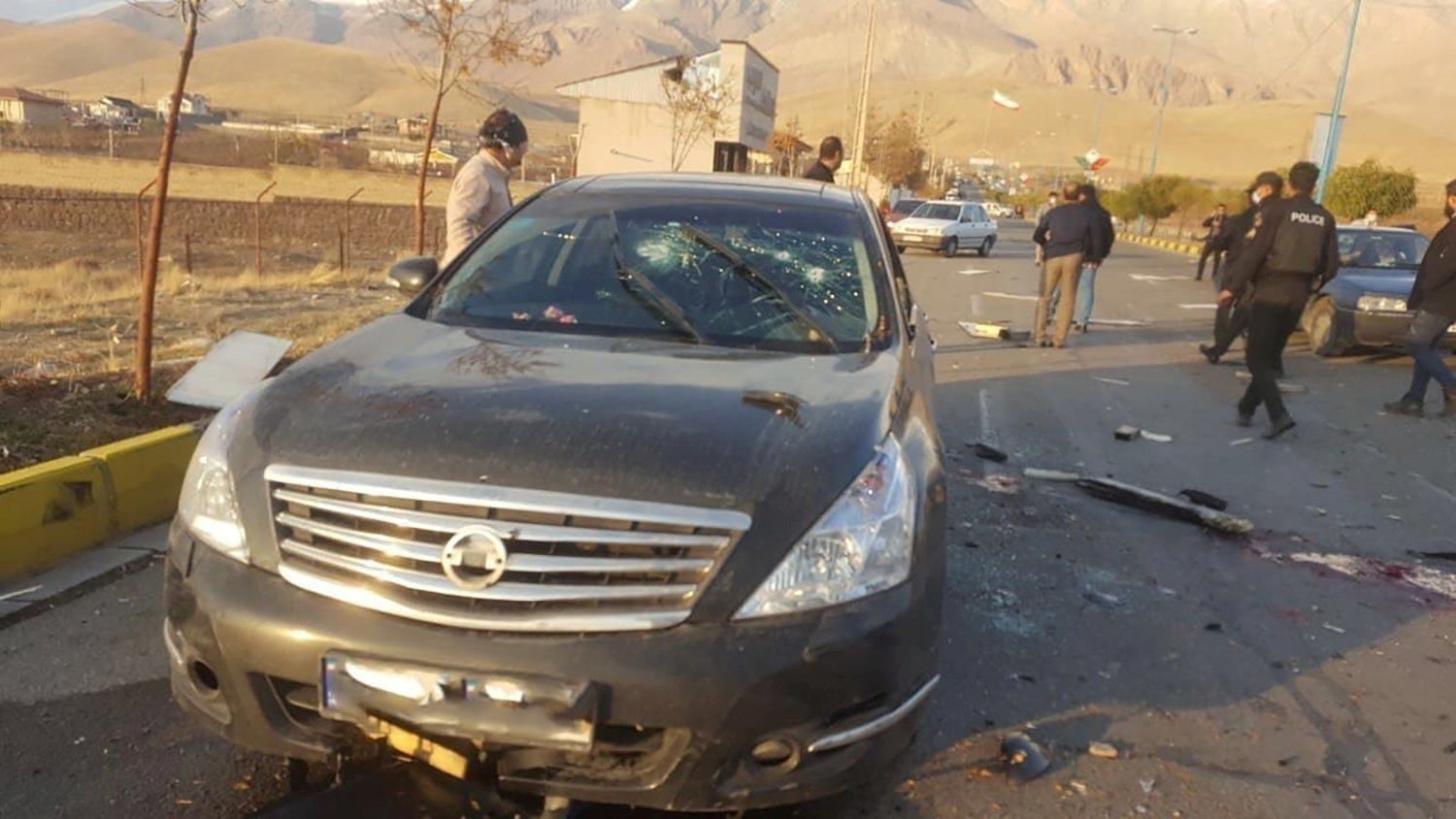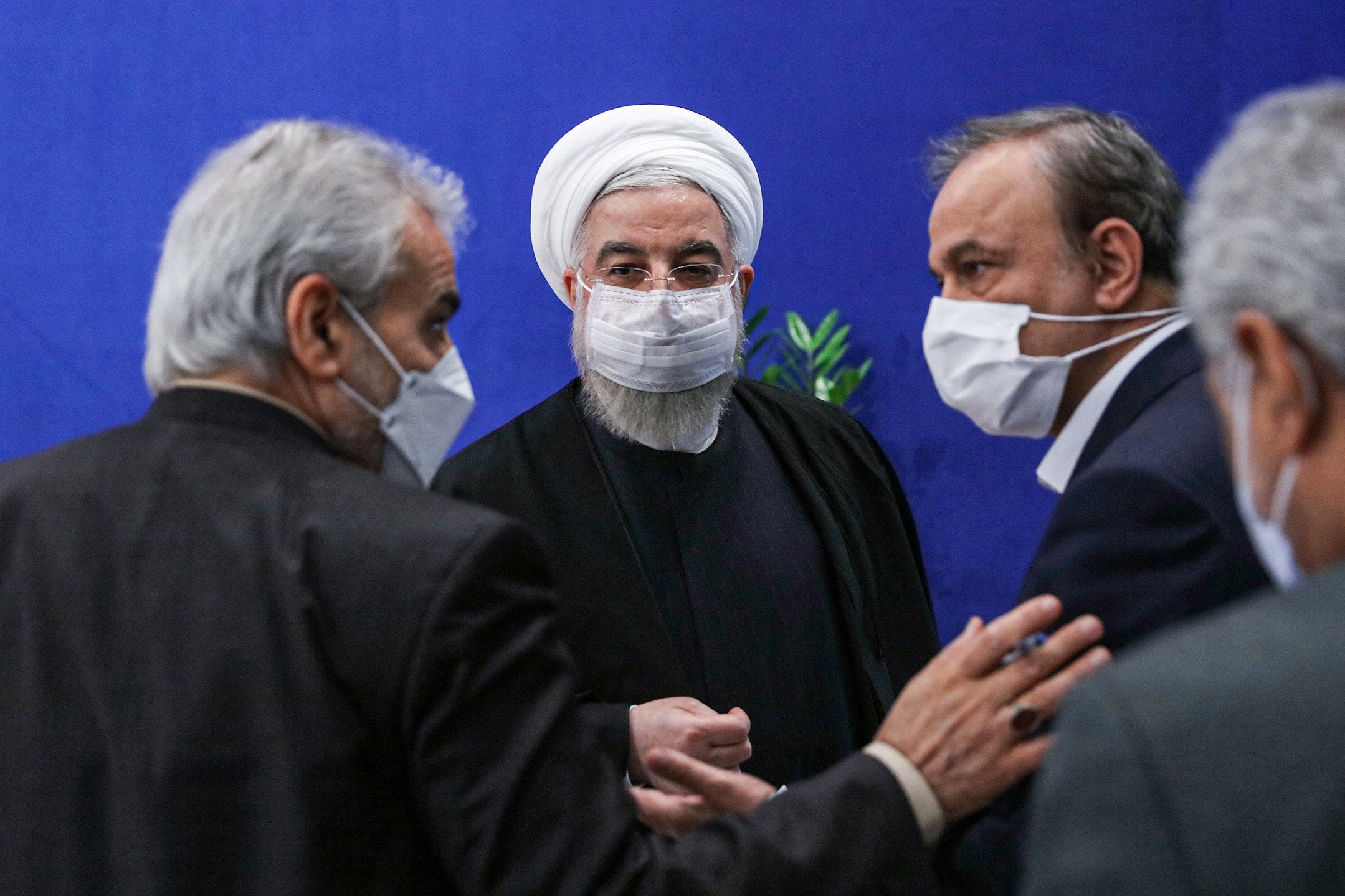Deal or no deal: High stakes as diplomats try to salvage Iran nuclear deal
The knife edge talks could provide the first major international crisis for the Biden administration, reports Kim Sengupta


Iran’s deal with international powers on its nuclear programme is heading for its first major crisis since Joe Biden’s election, with Tehran set to block the UN from carrying out snap inspections of sites from next week.
Iran has told the International Atomic Energy Agency ( IAEA) that it will stop the system of wide ranging checks from 23 February unless the new US administration starts lifting sanctions imposed by Donald Trump.
President Biden has indicated that he wants to rejoin the JCPOA ( Joint Comprehensive Plan of Action) which was abandoned by Trump, but has stipulated that Iran must reverse the steps it had taken recently in breach of the agreement.
The impending standoff has led to a flurry of diplomatic activity, with Angela Merkel urging Iran’s president Hassan Rouhani in a call on Wednesday to drop the projected restrictions on inspections and move back to compliance with the deal.
Rouhani, according to his office, urged European states to take an initiative on the sanctions. Iran has proposed that the European Union’s foreign policy chief Josep Borrell, who is also the head of the JCPOA Joint Commission, should choreograph both Iran and the US fulfilling their obligations.
French foreign minister Jean-Yves Le Drian will host his British and German counterparts, Dominic Raab and Heiko Maas, for talks on the nuclear deal this week, with the US Secretary of State Anthony Blinken joining on a video link.
Rouhani and Swiss president Guy Parmelin have discussed broadening a Swiss-based channel for humanitarian supplies to Iran, which was set up after the financial penalties for trading with Tehran were rolled out by the Trump administration.
Iran has also been seeking intermediaries on the nuclear deal in the Middle East. Qatar’s foreign minister, Sheikh Mohammed bin Abdulrahman Al-Thani, met Rouhani and Iran foreign minister Mohammad Javad Zarif in Tehran on Monday. Zarif had also met the Iraqi foreign minister, Fuad Hossein.
But the diplomatic efforts have been taking place against a background of rising tension. On the same day that Tehran informed the IAEA on inspection curbs, Ayatollah Ali Khameini warned that President Biden must take decisive action if the JCPOA was to survive.
Earlier in the week, a salvo of missiles was fired at a US base at Erbil, in northern Iraq, killing a military contractor and injuring a soldier. The attack was claimed by a Shia militia allied to Tehran who said it was in retaliation for the assassinations of its leader, Abu Mahdi al-Muhandis, and Iranian commander Qassem Soleimani by the US. At the end of last week Saudi Arabia said it had foiled an attack on an airport, at Abha in the south-west of the country by the Houthis in Yemen, who are backed by Iran.
The latest sequence of events has jolted what was seen as an encouraging start to the process of the US rejoining the agreement after Trump’s election defeat.
The coming of Joe Biden, vice-president in the administration which signed the deal, seemed to pave the way for the US to rejoin the JCPOA. His Iran envoy, Robert Malley, had helped negotiate the nuclear deal.; his national security advisor, Jake Sullivan, had met with Tehran officials in the run up to the agreement being signed, and his nominee as CIA director, William Burns, is a veteran diplomat who has never been an Iran hawk.
One of the first acts of the new administration was to withdraw the aircraft carrier USS Nimitz, and its strike group, from the Gulf in what was seen as a signal to Tehran of de-escalating tensions.
But the US as well as the west European signatories to the JCPOA – Britain, France and Germany – have expressed deep concern over a number of moves by Tehran. This includes enriching uranium to 20 per cent, and the production of non-enriched uranium metal which has little civilian use but can be used to build the core of a nuclear bomb.
The question being asked is if the Iranians are seeking leverage through their seemingly tough stance and actions of allied armed groups before bargaining begins with the US on the nuclear deal?

“Who wouldn’t? I believe this leveraging game will continue and I think that Iran has this geopolitical superiority to do that because it has done it in Iraq and Syria with mobilising friendly forces to leverage political positions”, said Keyhan Barzegar, chair of politics and international relations at the Islamic Azad University in Iran.
“These forces are reliable and I think Iran would continue with that. The nuclearissue is more complicated. Iran has its leverage on that, which is the 5% nuclear activity plus 20% uranium enrichment, and there is this deadline of 23rd February which has been already extended once.”
Speaking at a discussion on the nuclear deal at the Royal United Services Institute (RUSI) in London, Dr Barzegar said: “The US has the leverage of the sanctions as we know. Perhaps both sides think that they have upper hand situation. But this is a very dangerous game, because that will leave the two countries to a domino situation they will feel they need to go ahead with.
“Iran also thinks that it survived from the maximum pressure policy [ of Trump] and the sanctions didn’t have that impact to change Iran’s behaviour. They are related to the deterrence power of Iran and as there are threats to Iran’s national security, the government would be able to justify the legitimacy of going ahead with this policy. “
Rouhani told Merkel in their call, according to German and Iranian officials, that any attempt by the US to extent the JCPOA to include other issues such as Iran’s missile programme, as has been mooted, was “an impossible proposition”.
Seyed Hossein Mousavian, who was a member of Iran’s nuclear negotiating team and is currently at Princeton University specialising in Middle-East security and nuclear security, maintained that trying to bring in missiles into a new deal would fail.
“That would be a discriminatory policy, leaving Israel with hundreds of nuclear bombs; missiles with 5000 kilometres of ranges, capable of nuclear warheads. Leaving Saudi Arabia with 3300 3500 kilometres range of Chinese missiles, and only negotiate with Iran to dismantle its missile capability which has the range of 2000 kilometres – that has a zero chance of success”, he said.
The Iranian economy, however, has suffered gravely from the crippling effect of US sanctions and many publicised commercial links being formed with China and Russia will not compensate for that.
A senior Iranian diplomat who was involved in the JCPOA negotiations said: “We cannot deny the fact that the economic war that Trump launched against our country has caused a lot of damage. The sanctions are unjust and they are also a heavy blow that needs to end. We know people in Mr Biden’s team who worked to make the JCPOA a reality and want it to succeed. We need to build on that.”

European and US diplomats have spoken of a number of “baby steps” being considered by the Biden administration to lower tension and encourage Tehran to edge back into compliance.
One would be to help Iran economically by easing the path for the IMF to lend to Tehran. Tehran sought a $5 billion (£3.6bn) loan in March last year to cope with the coronavirus pandemic adding to economic crisis.
It was the first time Iran had asked for an IMF loan in six decades, but it was blocked by the Trump administration. Since then there has been a steady rise in support within the IMF for an emergency loan and the European Union has stated that it would support Iran on the issue.
The US can also ease European credit facilities for Iran to trade internationally, currently difficult due to Washington’s secondary sanctions, and widen the base for humanitarian supplies.
A senior diplomat from a Western European state said: “The impression we get is that the Americans are looking at all this quite closely, and may well swing behind an IMF loan and they are open to discussion on credit facilities. They don’t want to rush into things, but there’s certainly no sense that they are turning their back on an agreement.”
Join our commenting forum
Join thought-provoking conversations, follow other Independent readers and see their replies
Comments


Bookmark popover
Removed from bookmarks